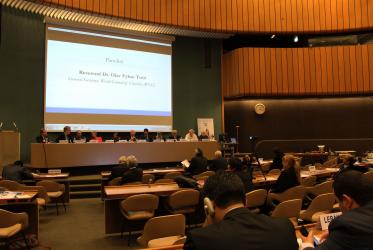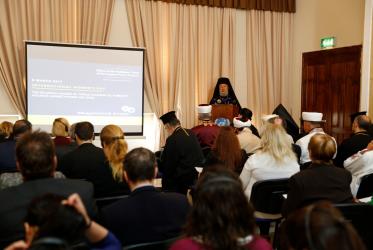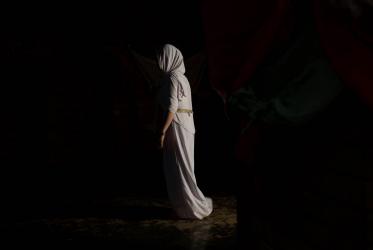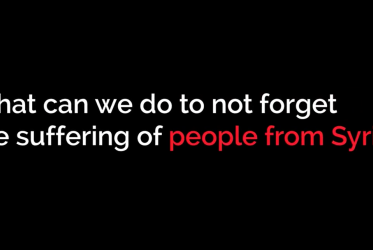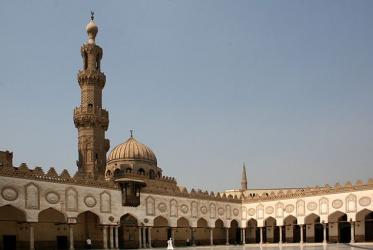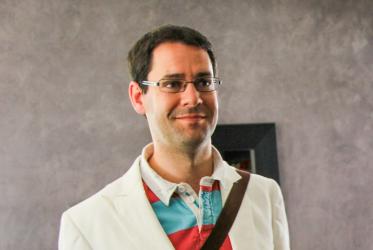Displaying 61 - 80 of 134
Islam and Christianity: finding the common ground
16 March 2017
WCC gravely concerned over Israel’s travel ban
09 March 2017
‘No Christmas bells in Mosul’ for a third year, says Assyrian priest
14 December 2016
Al-Azhar: navigating the difficult centre
06 October 2016
WCC general secretary reflects on peace in Palestine and Israel
20 September 2016
Facilitating peace with passion
26 July 2016
Beirut workshop fosters cooperation on diakonia
14 June 2016



